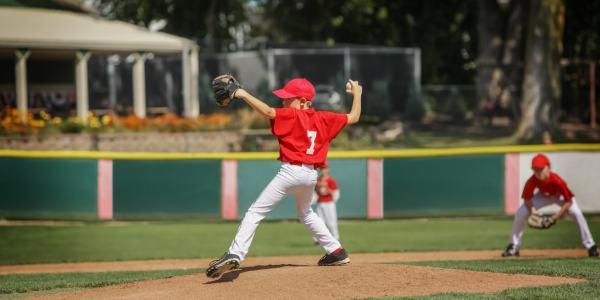
What is “Choking” — Crumble Under Pressure.
Some examples of chokers:
- A basketball player who misses two free throws with seconds left in the game, with her team down by one point.
- The baseball closer who melts down in the 9th inning and gives up four runs to blow the save.
- The football kicker who shanks the extra point to tie the game in the fourth quarter.
Choking is under performing during pressure moments of a game or competition.
The problem is not about kids’ ability to perform. It’s about performing under pressure. For chokers, pressure becomes overwhelming and interferes with performing in the moment.
When kids label themselves as “chokers.”
Truth is, even the best basketball players have missed free throws late in a game. Most baseball pitchers have had innings when everything seemed to unravel.
Even Hall of Fame kickers have missed extra points late in games.
However, when young athletes label themselves as chokers, they accept the label as truth and create that expectation.
Let’s go back to our basketball example. “I am a choker” means “I will probably miss these free throws.”
Those thoughts create anxiety and bring about images of past missed attempts. When sports kids are anxious, their forearms tighten, which throws off their technique.
Conversely, if they have no expectations going to the free throw line, they can focus on each shot separately.
Kids may still feel jitters, but not so much that their mechanics are affected. In this scenario, young athletes don’t learn to shoot better; they just need to improve their ability to manage pressure, focus and stay physically relaxed.
Nerves vs Anxiety
The key for sports kids is managing nerves or preventing “nerves” from building to anxiety that hurts their performance. Learning to reel in nerves is a valuable mental skill worth developing.
World No. 3 tennis player Jessica Pegula dislikes the word “choking.” Pegula believes that the choker label hurts an athlete’s identity and performance.
Pegula views tough losses as an inability to manage nerves when the momentum shifts in a competition.
“Choking? It’s a harsh word,” Pegula said. “I think everyone kind of does to some extent. I think it’s just because you get nervous…I think it’s more of a momentum shift and maybe more nerves and just how you’re kind of handling those nerves.”
When kids’ nerves get out of hand, they panic and lose focus. Athletes perform best when they can stay calm and maintain a sense of objectivity as they compete.
“Some days, there’s no rhyme or reason,” said Pegula. “Some days you can feel like you’re a little tense, and for some reason, you can feel like maybe the momentum is shifting in a match, and you’re just putting a lot of pressure on yourself to do the right thing. I think maybe instead of thinking clearly, you’re panicking a little bit instead of trying to think of the big picture.”
From Pegula’s perspective, all athletes can learn to manage their nerves and perform at their peak under pressure.
When sports kids know they can manage their nerves in any scenario, they will feel empowered and confident under challenging situations.
Since all athletes experience nerves during a competition, it’s important to know how to perform at a high level when they feel pressure.
When your sports kids perform their best, what helps them manage their nerves? Are they focused on the moment? Are they fully confident in their skills? Do they play intuitively, trusting in what they’ve learned?
Young athletes should use past positive performances to help them find the ideal mindset for managing nerves.
Related Sports Psychology Articles
- How Youth Sports Coaches Can Build Resilience in Kids
- Helping Kids Perform Their Best in Sports at Crunch Time
- Helping Young Athletes Stay Calm
*Subscribe to The Ultimate Sports Parent Podcast
*Subscribe to Peak Performance Sports on Youtube
Download a free sports psychology report to improve your mental game!
Sports Psychology Coaching for Young Athletes

One-on-one mental performance coaching is the fastest and most effective method to improve your athletes’ mental game, boost their performance, and make lasting changes. And as a bonus, parents learn what to say to help young athletes feel confident and thrive in sports. Please call us at 888-742-7225 with your questions.
